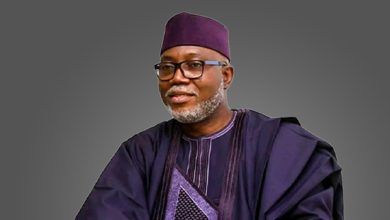
In a decisive step towards deepening its regional trade integration, Nigeria has officially gazetted and transmitted the ECOWAS Schedule of Tariff Offers for Trade in Goods under the African Continental Free Trade Area (AfCFTA) to the AfCFTA Secretariat.
This milestone precedes the 16th Council of Ministers Meeting on Trade, slated for April 15 in Kinshasa, Democratic Republic of Congo, and signifies Nigeria’s full preparedness to implement the preferential trading framework of AfCFTA.
Zero Tariff Implementation on 90% of Goods
The newly gazetted schedule lays the groundwork for zero tariffs on 90% of tariff lines, enabling Nigerian exports to enjoy greater access and competitiveness across African markets.
Signed by President Bola Ahmed Tinubu, the document underscores Nigeria’s intent to drive export-led growth, improve its trade balance, and attract intra-African investment.
“This milestone enables Nigerian exporters to leverage preferential tariff access across African markets, positioning Nigeria as a key player in regional and global trade,” said Jumoke Oduwole, Minister of Industry, Trade and Investment.
From Commitment to Action: Nigeria Accelerates AfCFTA Participation
Although Nigeria made its first shipment under the AfCFTA framework in July 2024, the formal gazetting of the ECOWAS tariff schedule signals a new phase of accelerated trade integration.
Key economic benefits of this step include:
- Trade Expansion: Tariff elimination on 90% of goods improves competitiveness of Nigerian products continent-wide.
- SME Empowerment: Easier market entry for small and medium enterprises.
- Job Creation & Investment: Boosted investor confidence and export activity could generate jobs and attract FDI.
- Regional Leadership: Reinforces Nigeria’s strategic influence in ECOWAS and broader AfCFTA economic governance.
Phased Tariff Reduction Strategy
Nigeria’s tariff reduction approach is phased over 10 years, beginning in 2021:
- For least developed African countries, tariffs are reduced by 10% annually, targeting a 50% reduction by 2025.
- For developing countries, Nigeria has opted for immediate 0% tariff on selected goods, with 20% annual reductions on others.
This phased liberalization aligns with the African Union’s 2022 directive and grants Nigeria full flexibility in shaping trade under AfCFTA rules.
Digital Trade Agenda: Nigeria as a Continental Leader
Beyond traditional trade, Nigeria is also emerging as a front-runner in digital trade development. President Tinubu was recently praised for his leadership in AfCFTA’s digital trade initiative, aiming to streamline cross-border e-commerce and digital payments.
As Co-Champion of AfCFTA Digital Trade, Nigeria is committed to making the free trade agreement more inclusive for tech-enabled businesses and SMEs, ensuring they benefit from the evolving African trade ecosystem.





